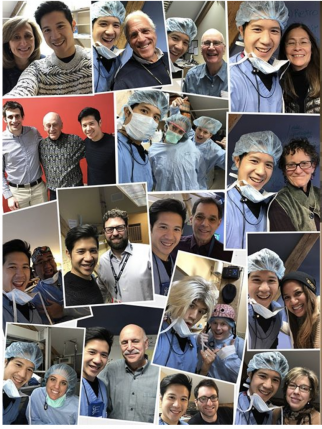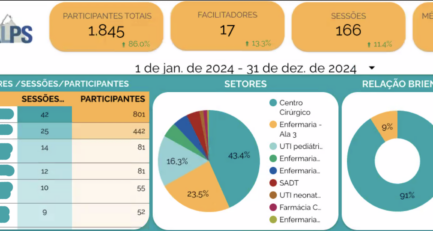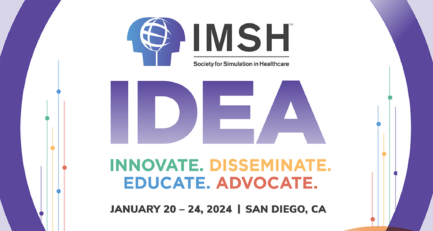 Albert Chan, MD, is an anesthesiologist and a Visiting Scholar at the Center for Medical Simulation.
Albert Chan, MD, is an anesthesiologist and a Visiting Scholar at the Center for Medical Simulation.
“As I meandered down the hallways of the Center for Medical Simulation at the Navy Yard saying my final goodbyes, I could not help but marvel at the amazing intellectual journey the past nine weeks has taken me. Not only have I learned about the intricacies of medical simulation and education, I have gained completely new insights into myself.
When I first arrived at the CMS, it was a bit daunting as I did not know what to expect. I was at the very center of the simulation world, surrounded by experts in medical education. What will they think of me with my limited simulation experience? Will I be accepted by the staff and faculty? My concerns were alleviated in no time – in true CMS fashion, everyone embraced and welcomed me into the family and established the “safe container.” I was ready to become a learner once again.
There were many things that were impressive at the CMS – the flattened hierarchy, the openness of communication, the constant reflection and feedback to each other, the demand for improvement and excellence, the creativity of the sim techs (yes, Johnny Tsunami), the wealth of knowledge, the constant supply of soda (yes, it’s amazing). But if I had to pick one thing I learned the most from, it would undoubtedly be the Comprehensive Instructor Course.
I was fortunate enough to be both a participant in the course, as well as faculty observing from behind the scenes. I learned so much about the application of educational theories, the complexities of debriefing, and more about the adult learners’ mind. Not being a reflective person naturally, be it due to my culture or personality – the course has made me look within myself and explore my own psyche. I came to realize the frequent inferences and assumptions I have made about others in the past, and the effect it has had on communication and relationships. Being curious has taken on a whole new meaning.
The most remarkable thing was how the faculty and staff embodied the principles that they taught, and how the course was so carefully crafted and choreographed to center around the learners’ needs, and to build a strong sense of community among the participants. If I were to be a medical educator, that is exactly what I aspire to be.
“How can you just do simulation for such nine weeks? Doesn’t it get boring?” one of my good friends asked me. This notion did cross my mind before I came to CMS, but I was proven wrong. Medical simulation is not simply using mannequins to unnerve clinicians – it is an experiential and reflective process – as was my fellowship at the CMS. At the same time, I was able to personally witness the power of conversation – not only through practicing debriefing with good judgment in the courses, but also by talking to CMS faculty, staff, techs – I have truly expanded my horizons.
Harkening back to what Mary Fey said in the Instructor Courses, I have attained “threshold knowledge” – I cannot unlearn the knowledge I have acquired here. WTF forever means “What’s Their Frame?”, I shall always teach from a stance of curiosity, and assumptions is the mother of all [mistakes].
Thanks to all the faculty at the CMS who have given me the opportunity to join in the debriefings and provided me with valuable feedback, and thanks for sparing me some of their valuable time despite busy schedules to chat about my project – especially Jenny, Roxane, Jeff, Dan, Robert and Kate. And thanks to the awesome staff who hung out with me in the back all the time and have taught me so much – Johnny, Tony, Jenn, Matt, Emily and fellow visiting scholars! Hopefully we can maintain our relationships in the years to come!
Most importantly, have to thank my dear wife Christina for supporting me on this trip and helping me take care of the babies while I am at CMS! I know it must have been tough!
Looking up at the wall of the back debriefing room one last time as I walked out, “The Basic Assumption” has taken a completely different importance and meaning from nine weeks ago, and I hope that I can bring all that I have learned back home.”
–Albert Chan, MD

